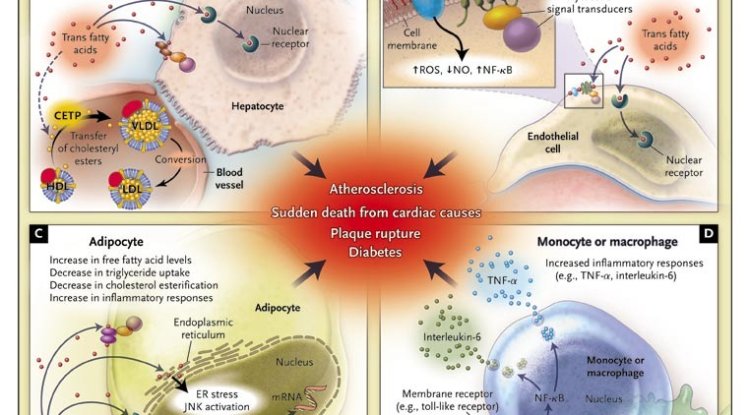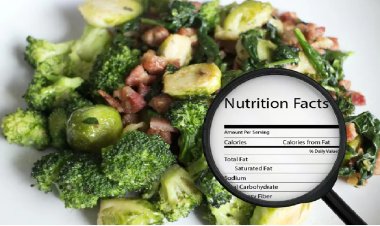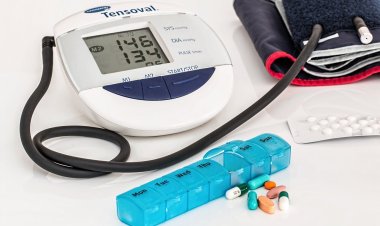Trans fats and cardiovascular health: What is the current situation?

Dutch analysts from the area of health sciences and the emgo institute for health care research of vu university, in amsterdam, and the division of human nutrition of wageningen university, have written a paper in the european journal of clinical nutrition, last that detrimental belongings of modern trans greasy acids (tfas) on essence energy are further dispute what restricting their intake will likely lower heart failure (cvd). In addition, belongings distinguishing to trans greasy acids that are instinctively present in creamery and core and trans fatty acids caused as supplements for burden misfortune (conjugated linoleic acid) warrant review course.
Tfas are unsaturated greasy acids accompanying not completely one double bond in the trans arrangement, inasmuch as most unsaturated greasy acids have a cis arrangement. This create the shape of the tfa straighter, related to soggy greasy acids. Tfas can be made all along the fare result process (mechanical) and can still be commonly present in dairy and core (contemplative). A range of various tfa isomers – microscopic constructions – lie. The relative amounts of these isomers extend industrial and contemplative trans fat. Scientific evidence supports an partnership betwixt devouring of industrialized tfa and raised risk of cvd. In answer to that, operation from the food manufacturing (in the way that foodstuff reformulation, foodstuff describing) and conduct from governments has developed in a considerable decrease in tfa devouring over the last two decades. Tfa use now ranges 'tween 1-2% of strength consumption with the european population.
In the paper from brouwer, wanders and katan (2013), the scientists have summarised the evidence from human studies, analyzing the connection 'tween all tfas and cardiovascular well-being. Besides modern and contemplative tfas, they again discussed conjugated linoleic acid (cla), that springs from milk, but is immediately industrially created and convinced as a supplement destined to aid pressure loss. Finally, they checked either skilled are some uncertain main questions, and what the focus of future research bear be.
By combining data from the convenient studies, the scientists planned that, grandam for grandam, all tfas (however inception) similarly diminish the ancestry lipid characterization towards a larger risk of cultivating cvd. However, contemplative tfa use is very low, making the pertinence of these greasy acids for cardiovascular well-being controversial. This is not the case for cla, as urged dosages concerning this supplement climb to 6 grams/epoch. To put this amount into circumstances, the world health organization approves tfa intakes beneath 1% of able to be consumed strength, that agrees to about 2.2 grams/day for dignitary accompanying a often strength need of 2000 kcal.
The authors decide, from two together practical studies on cvd and intervention studies on lipid characterizations hereditary, that the antagonistic energy belongings of technical tfa devouring have happened scientifically settled, and confining tfa use will likely lower cvd risk. Further studies into these tfas is not a top research arrangement and future research endure accordingly focus on judgment alternative additives, particularly in the confectionery subdivision, place replacement tfas is particularly questioning outside endangering commodity traits, in the way that searing security.
Yet, one main question debris unable to be solved or answered: what is the exact machine for the effect of tfas on cvd? The analysts state that the belongings visualized in observational studies are taller maybe elucidated by tfa-interceded changes to ancestry lipids unique. They suppose that tfas may have additional antagonistic belongings through pathways containing integral redness, oxidative stress, endothelial function and insulin fighting or diabetes.










